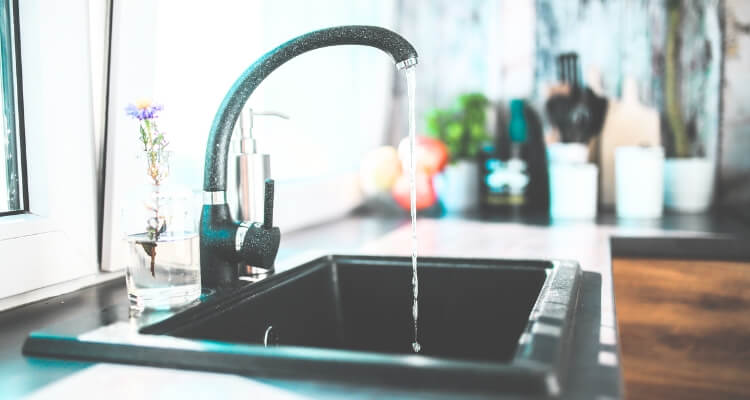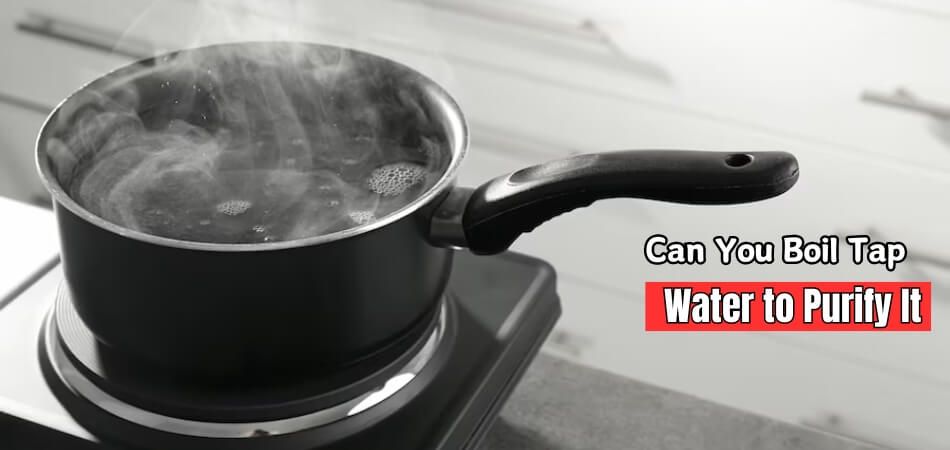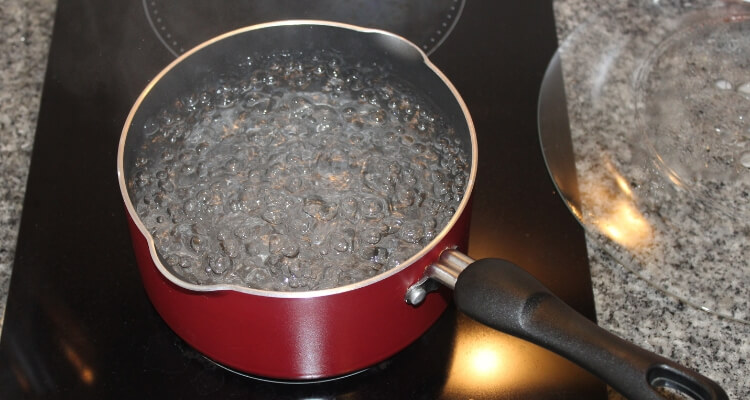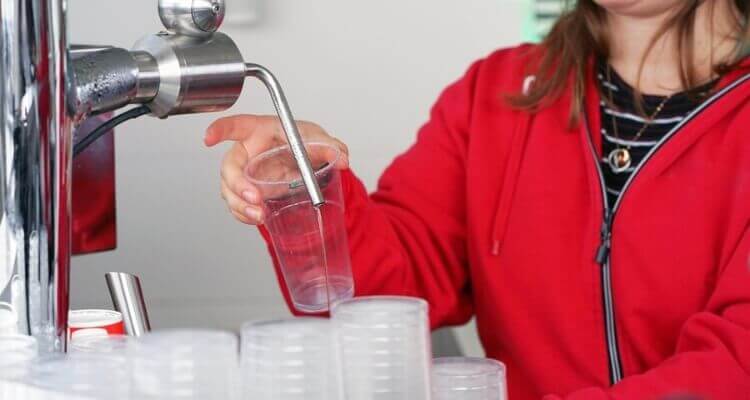When it comes to ensuring the safety of your drinking water, products like the GOpure Pod are transforming the landscape with their advanced filtration technology. But what about more traditional methods such as boiling? You might ask, “Can you boil tap water to purify it?”
While boiling tap water is a common method to kill many pathogens, it doesn’t remove all types of contaminants. For those seeking a foolproof solution, it’s worth exploring options like the GOpure Pod, which offers a comprehensive approach to purifying your water, ensuring it’s cleaner and safer for your family’s consumption.
Stay tuned as we search deeper into the effectiveness of boiling water compared to modern filtration technologies, and discover the best ways to ensure your drinking water is as pure as possible.
What Does Tap Water Mean?
Tap water refers to the water that comes directly from your faucet or tap at home, sourced from local water treatment plants. It’s the primary source of drinking water for many households, often undergoing treatment processes to make it safe for consumption.

Tap water is a convenient and readily available resource for daily activities such as drinking, cooking, and bathing. However, its quality can vary depending on factors like location, infrastructure, and water treatment methods used by local authorities. This variance highlights the importance of water purification solutions like the GOpure Pod.
While tap water is generally treated to meet safety standards set by regulatory bodies, it may still contain trace amounts of contaminants like chlorine, lead, or bacteria. This is where purification methods like using a GOpure Pod come into play, offering an additional layer of filtration for cleaner, healthier water.
The GOpure Pod, a compact and eco-friendly water purification device, is designed to enhance the quality of tap water by removing impurities and enhancing taste. Simply placing it in a water bottle or pitcher, works to eliminate harmful substances and improve overall water quality, ensuring peace of mind for users.
Can You Boil Tap Water to Purify It?
Do you know if boiling tap water is a reliable method of purifying it? I’d like to share a few details with you:

- Boiling Basics: Boiling tap water is a common method to purify it at home. When water reaches its boiling point (212°F or 100°C), harmful bacteria, viruses, and parasites are killed off, making it safer to drink.
- Contaminant Removal: Boiling tap water effectively eliminates many impurities, including bacteria and parasites, due to the high temperatures involved. However, some contaminants like heavy metals and chemicals may not be removed through boiling alone.
- Boiling Time: To ensure effective purification, tap water should be brought to a rolling boil and maintained at that temperature for at least one minute. For higher altitudes, a longer boiling time may be necessary to achieve the same level of purification.
- Limitations: While boiling is a straightforward purification method, it has its limitations. It does not remove certain contaminants like lead or pesticides, which may still be present in the water even after boiling.
- Enhancing Purification: To address the limitations of boiling alone, consider using a GOpure Pod. This innovative water purification device enhances the quality of tap water by removing a wide range of impurities, including those not eliminated through boiling.
- Convenience and Efficiency: Unlike boiling, which requires time and energy, using a GOpure Pod is quick and convenient. Simply place it in a water bottle or pitcher, and it will work its magic to give cleaner, healthier water in minutes.
- Complementary Approach: For optimal purification, consider combining boiling with the use of a GOpure Pod. Boiling can effectively kill off harmful microorganisms, while the GOpure Pod can further improve taste and remove additional contaminants, providing peace of mind.
The Importance of Boiling Water for Safe Drinking
Are you concerned about the safety of your drinking water? The following are some reasons why boiling water is so important:
Microbial Elimination
Boiling water kills off harmful microorganisms like bacteria, viruses, and parasites that can cause illnesses such as diarrhea, cholera, and typhoid fever.
Accessible Purification
Boiling is a simple and accessible method that can be performed at home with basic kitchen equipment. It doesn’t require special skills or expensive filtration systems.
Emergency Preparedness
In emergencies clean water is limited or compromised, boiling water can be a lifesaver. It provides a quick and effective way to make contaminated water safe for consumption.
Protection for Vulnerable Populations
Boiling water is particularly important for vulnerable populations such as infants, young children, pregnant women, and individuals with weakened immune systems. They are more susceptible to waterborne illnesses and require extra precautions.
Prevention of Waterborne Diseases
By regularly boiling tap water, you can reduce the risk of contracting waterborne diseases and safeguard your health and the health of your family members.
Complement to Other Methods
While boiling is effective at killing most microorganisms, it may not remove certain contaminants like heavy metals or chemicals. In such cases, using additional purification methods like filtration or the GOpure Pod can provide comprehensive protection.
Educational Outreach
Promoting the importance of boiling water for safe drinking through educational campaigns and community initiatives can raise awareness and empower individuals to take proactive steps to protect their health.
How to Boil Tap Water for Effective Purification
Boiling tap water is a simple and effective way to ensure its safety for drinking. Follow these steps to purify your tap water effectively:

Step-1
Fill a clean pot or kettle with tap water. Ensure that the container is large enough to accommodate the amount of water you need for drinking or cooking purposes.
Step-2
Place the pot or kettle on a stove and heat it over medium to high heat. Keep a close eye on the water as it heats up to prevent it from boiling over.
Step-3
Once the water reaches a rolling boil, let it continue boiling for at least one minute. This duration is essential to ensure that any harmful microorganisms present in the water are effectively killed off.
Step-4
After boiling, remove the pot or kettle from the heat source and allow the water to cool down before transferring it to a clean, sanitized container for storage.
Step-5
Use the boiled tap water for drinking, cooking, or any other purposes where clean water is needed. Remember to store any unused boiled water in a sealed container in the refrigerator for future use.
Step-6
Clean the pot or kettle thoroughly after use to prevent the buildup of mineral deposits or contaminants. Regular cleaning helps maintain the quality of your boiled tap water.
What Impurities Can Be Removed by Boiling Tap Water?
Did you know that boiling tap water can actually remove some things? The breakdown is as follows:
- Bacteria and Viruses: Boiling tap water effectively kills off harmful bacteria and viruses, including E. coli, Salmonella, and Hepatitis A, making it safer for consumption.
- Parasites: High temperatures achieved during boiling can also eliminate parasites like Giardia and Cryptosporidium, which can cause gastrointestinal infections and other health issues.
- Protozoa: Boiling tap water can destroy protozoan parasites such as Entamoeba histolytica and Cyclospora, reducing the risk of waterborne diseases like amoebiasis and cyclosporiasis.
- Some Chemicals: While boiling primarily targets microbial contaminants, it can also help reduce the concentration of certain chemical pollutants like chlorine and volatile organic compounds (VOCs).
- Sediments: Boiling tap water can cause sediments and particulate matter to settle at the bottom of the container, improving the water’s clarity and reducing turbidity.
- Some Heavy Metals: Although boiling is not effective at removing all heavy metals, it can help reduce the concentration of certain metals like lead and cadmium to some extent.
- Organic Compounds: Tap water is reliable if boil it, may help break down some organic compounds present in the water, although its effectiveness can vary depending on the compound and boiling duration.
What’s the Best Way to Purify Tap Water?
Choosing the right purification method is crucial to ensuring the safety of your tap water. Here are some options to consider:

A Traditional Approach
Boiling tap water is a time-tested method for purifying it at home. By bringing water to a rolling boil and maintaining it for at least one minute, you can effectively kill off harmful microorganisms like bacteria and viruses.
Enhanced Purification
Filtration systems, such as pitcher filters or faucet attachments, are designed to remove impurities from tap water. These systems typically use activated carbon or other filtering materials to trap contaminants and improve water quality.
Chlorination and Beyond
Chemical treatments like chlorination are commonly used in municipal water treatment plants to disinfect tap water. However, some individuals may opt for additional chemical treatments like iodine or chlorine dioxide tablets for camping or emergency preparedness.
Advanced Filtration Technology
For a comprehensive purification solution, consider the GOpure Pod. This innovative water purification device utilizes advanced filtration technology to remove a wide range of impurities, including bacteria, viruses, heavy metals, and chemicals.
Maximizing Effectiveness
In some cases, combining multiple purification methods can provide enhanced results. For example, boiling tap water can kill off microorganisms, while using a GOpure Pod can further improve taste and remove additional contaminants.
FAQs for Can You Boil Tap Water to Purify It?
Boiling tap water is a common method for purification, but it’s essential to understand its effectiveness and limitations. Here are some frequently asked questions:
Can Boiling Tap Water Make It Safe to Drink?
Yes, boiling tap water is a reliable method to make it safe for consumption by killing off harmful bacteria, viruses, and parasites. However, it may not address all contaminants present in the water.
Does Boiling Tap Water Affect Its Taste?
Boiling tap water can sometimes affect its taste by removing dissolved gases like oxygen and carbon dioxide. This may result in a slightly flat or “cooked” taste, which some people may notice.
Can Boiling Tap Water Remove Chlorine?
Boiling tap water can help reduce the concentration of chlorine, a common disinfectant used in municipal water treatment. However, it may not completely remove all traces of chlorine from the water.
Is Boiling Tap Water Energy-Efficient?
Boiling tap water requires energy to heat the water to its boiling point, making it less energy-efficient compared to other purification methods like filtration. However, it is a relatively simple and accessible method.
Can I Reuse Boiled Tap Water?
Yes, you can reuse boiled tap water for various purposes like cooking or cleaning. It’s essential to store any unused boiled water in a clean, sealed container and refrigerate it for future use.
Last Word
Safe drinking water is essential for your health and well-being. Boiling can eliminate many harmful microorganisms, but may not remove all contaminants. A variety of impurities can be removed by advanced filtration technology, such as the GOpure Pod.
Can you boil tap water to purify it? Yes, boiling can be a helpful step in purification, but for comprehensive protection, consider incorporating the GOpure Pod into your routine. Water can be made cleaner and safer by combining traditional methods with modern filtration technology.






